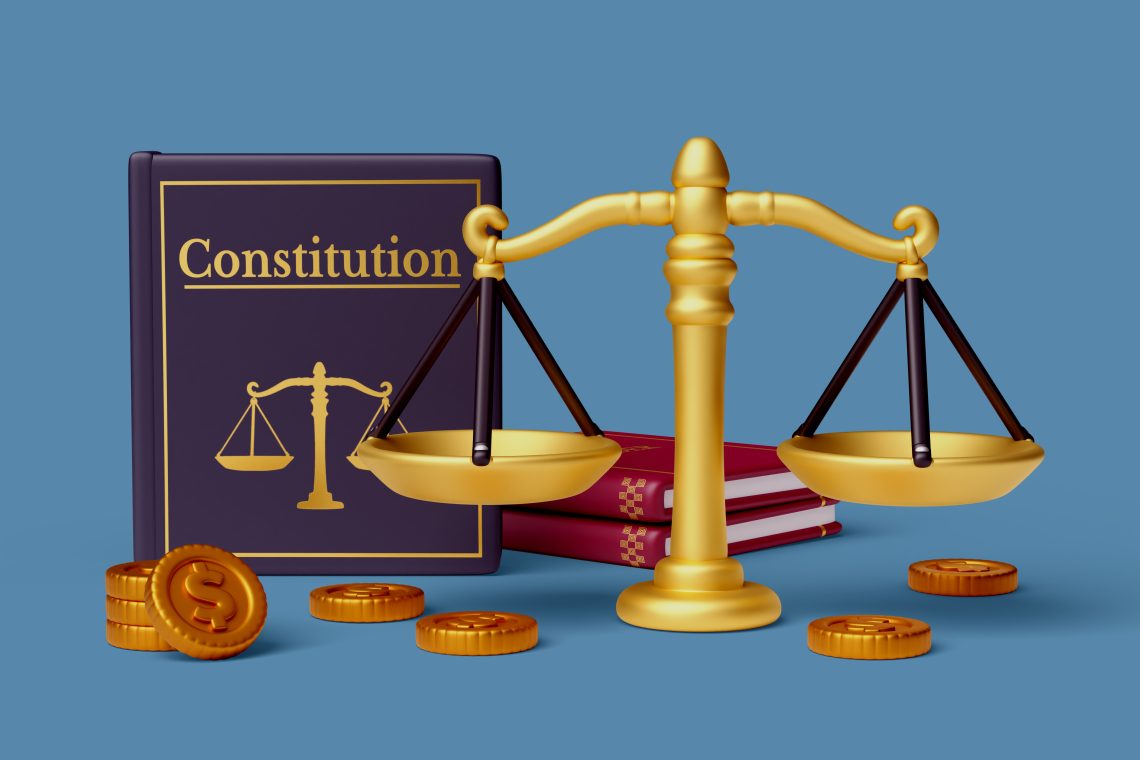Every country makes laws and rules to regulate business activities. These laws, with varying degrees of success, facilitate good business practices, protect stakeholders, and improve the ease of doing business. Various laws, rules, and regulations guide doing business in Nigeria. They address aspects of running a business, such as sales of goods, corporate governance, capital acquisition, foreign investment, taxation, insurance, etc. This article, which is in 2 parts, is a basic guide to some of these laws.
SALE OF GOODS
All businesses engage in an exchange of goods or services with their clients or customers for money. This commercial relationship requires regulation to ensure the protection of the parties involved and to establish the duties, rights, and remedies available to them.
- The Sales of Goods Act
This act covers the entire basis of a contract of sale between buyers and sellers. It provides for the various elements that constitute a valid contract of sale. It provides for what can be seen as conditions or terms of warranty from sellers and what their breach entails. It provides for the rights of a buyer and seller and the remedies available in the case of a breach.
It is important to note the responsibilities of a seller under the Act and ensure you follow through when dealing with your customers. Some of them include: ensuring that the goods delivered are of the same description, quality, and quantity as agreed, passing an absolute and good title of the goods to the buyer, ensuring that the goods are in line with the express and implied conditions/warranties as agreed, delivering the goods within the time agreed, and in a good state, etc.
CORPORATE GOVERNANCE
Companies are the most recognized and preferred form of business today. Brands like Coca-Cola and Google are known in almost every country. Features like limited liability, corporate personality, and perpetual succession make companies great vehicles for doing business at scale. If you’re looking to put structure to your business, you should be aware of this legislation.
- Companies and Allied Matters Act (CAMA) 2020
The Act established the Corporate Affairs Commission (CAC), the companies registry and primary regulatory body, to implement its provisions. It provides for the types, structure, eligibility, registration, daily running, and dissolution of businesses. Companies (including foreign ones) must register with the CAC before doing business in Nigeria. They must also file annual returns with, and notify the CAC of any management changes.
Companies, Limited & Limited Liability Partnerships (LPs & LLPs), Business Names, and Incorporated Trustees are the corporate entities recognized by the Act. Information such as owner(s)’ details, name, nature, and address of the business, etc, are required for registration.
The Act provides for one-person companies, limited liability partnerships, and restrictive share transfer, which may increase the ease of doing business and boost the growth of MSMEs. MSMEs and LLPs can now enjoy limited liability, which may help them access better funding and investment opportunities.
You can check our previous article on How to register a company under the Companies Act and How the recent changes to the CAMA affect SMEs.
CAPITAL ACQUISITION
Access to capital is vital to the growth of any business. Nothing impedes the growth of businesses like a lack of funding. People are realizing that providing capital to promising businesses can be very profitable and are doing so. This has increased unethical and fraudulent practices in acquiring capital. To enforce ethical capital acquisition and protect investors, there are laws to guide this aspect of business. The recent growth of crowdfunding has also attracted some public and regulatory attention.
- Investment and Securities Act 2007
This Act governs the Nigerian capital market and establishes the Securities and Exchange Commission (SEC) as its apex regulatory authority. The SEC is empowered to make rules to regulate capital market activities and operators, including mergers, acquisitions, takeovers, and collective investment schemes. It also regulates invitations to the public, public offers, and the sale of securities.
The SEC, through a Board of Trustees, administers investor protection funds to compensate investors who lose their money through an act or omission of a dealing member firm of a securities exchange. The Act prohibits private companies from raising equity from the general public without regulatory approval. As a result, the SEC has banned equity crowdfunding in Nigeria.
- Jan. 2021 SEC Guidelines on Crowdfunding
The Guidelines are aimed at regulating reward-based crowdfunding in Nigeria. They impose requirements and restrictions to control which businesses can operate or use crowdfunding in raising capital to protect investors, especially low-income earners.
To register, crowdfunding portals must have a minimum paid-up capital of ₦100,000,000 (One Hundred Million) and be registered intermediaries. They must also maintain separate trust accounts for each crowdfund. Medium, small, and micro enterprises must have at least a 2-year operating track record and cannot raise a total amount exceeding ₦100 million, ₦70 million, and ₦50 million, respectively.
Crowdfunding offers must not run for more than 60 days. Where a target is not met, the issuer must withdraw the offer and not start another one earlier than 90 days from the withdrawal. Hosting concurrent offerings on multiple platforms is prohibited. Investors can withdraw from an offer within 48 hours, revoke an investment within 7 days of an adverse change to the project, and sue or withdraw in the case of misrepresentation.
FOREIGN INVESTMENT
An influx of foreign investment can boost a country’s economy and enhance its growth. Many investors, however, are deterred by fears of nationalization, seizure of capital, and hostile policies. Governments seek to encourage foreign investment, ease entry, and allay fears through laws and policies.
- National Investment Promotion Commission (NIPC) Act
The Act established the National Investment Promotion Commission (NIPC) to encourage foreign investment. The NIPC presents incentives and guarantees for foreign investments. It is a “one-stop” agency that coordinates investment promotion activities, reduces red tape, and improves the ease of doing business in Nigeria.
The Act guarantees that foreign investors can import their investment capital, profits, and dividends through authorized dealers. Funds imported for investment in legitimate businesses can also be transferred abroad to the place they were imported from through authorized channels.
- National Office of Technology Acquisition and Promotion (NOTAP) Act
The Act established the National Office of Technology Acquisition and Promotion (NOTAP). It facilitates the transfer of new or rare foreign technology into Nigeria while protecting local technology. It requires all contracts involving technology transfer with Nigerian partners to be registered with NOTAP within 60 days of its execution.
Failure to register contracts involving the use of trademarks, right to use patented inventions, supply of technical/managerial expertise, engineering, and machinery with NOTAP will prevent foreign partners from transferring profits through the Central Bank.
When a contract requires a transferee to submit to a foreign jurisdiction in the case of a dispute or involves technology that is obsolete, grossly overpriced, or freely available in Nigeria, it will generally not be registered. The Governing Council of NOTAP, however, has discretionary powers to register a contract, though some of its provisions contravene the Act.
- Foreign Exchange (Monitoring and Miscellaneous Provisions) Act
The Act regulates the operation of the foreign exchange market and provides a framework for the remittance of interest, dividends, and principal payments in foreign currency by foreign investors. It guarantees that foreign currency imported into Nigeria will not be seized, forfeited, or expropriated by the government except as provided under the Act.
Investments made in foreign currency are imported through authorized dealers and converted into naira at the official exchange rate. The dealer issues a Certificate of Capital Importation (CCI) to the investor as evidence of the capital importation, which guarantees unconditional transfer of the profits, dividends, etc. from investments through Nigerian banks overseas.
- National Immigration Service Act 2015
The provision of a visa on arrival for foreign investors intending to carry on business in Nigeria promotes the ease of doing business. Foreigners investing a significant amount in Nigeria can also enjoy special incentives in the process of obtaining a Residence Permit.
INSURANCE
Business involves various risks, ranging from loss of property and capital to injury and death. To protect employees and members of the public, governments mandate businesses to maintain a minimum insurance cover to ensure their safety and cater for damage caused to property and persons.
- Insurance Act 2003
The Act mandates that buildings higher than two storeys are insured against construction risks and professional negligence that may result in bodily injuries, property damage, or death to workers and the public.
- Motor Vehicles (Third Party) Act 1950
The Act mandates motor vehicle owners (individual and corporate) and drivers of motor vehicles to maintain comprehensive vehicle insurance policies. This covers vehicle owners and third parties in the event of death, bodily injury, and property damage resulting from motor accidents. Failure to comply is an offence punishable by a fine of ₦100,000, six months imprisonment, or both.
- Employee Compensation Act 2010
The act requires every employer to make a minimum monthly contribution of 1% of the total monthly payment of employees to the employee compensation fund, which is kept with the Nigerian Social Insurance Trust Fund (NSITF). Sick, injured, deceased, or disabled employees or their beneficiaries would be compensated from the fund for harm suffered while working.
- Pension Reform Act 2014
The Act requires an employer with 5 or more employees to take out life assurance policies in their favour for not less than three times the annual total pay of each employee. Employees or their beneficiaries would be compensated in the event of injury or death. Failure to comply attracts a fine of ₦250,000, one-year imprisonment, or both. Judges, members of the armed forces, and the intelligence and secret services are excluded from its provisions.
- National Health Insurance Scheme (NHIS) Act
The Act requires medical institutions to take out a professional insurance policy for licensed health care providers under their employment. It applies to employers with at least 10 employees. The policy is to compensate patients or beneficiaries in case of incidences arising from professional negligence.
You can check our previous article on how businesses can protect against risks by having insurance policies.




